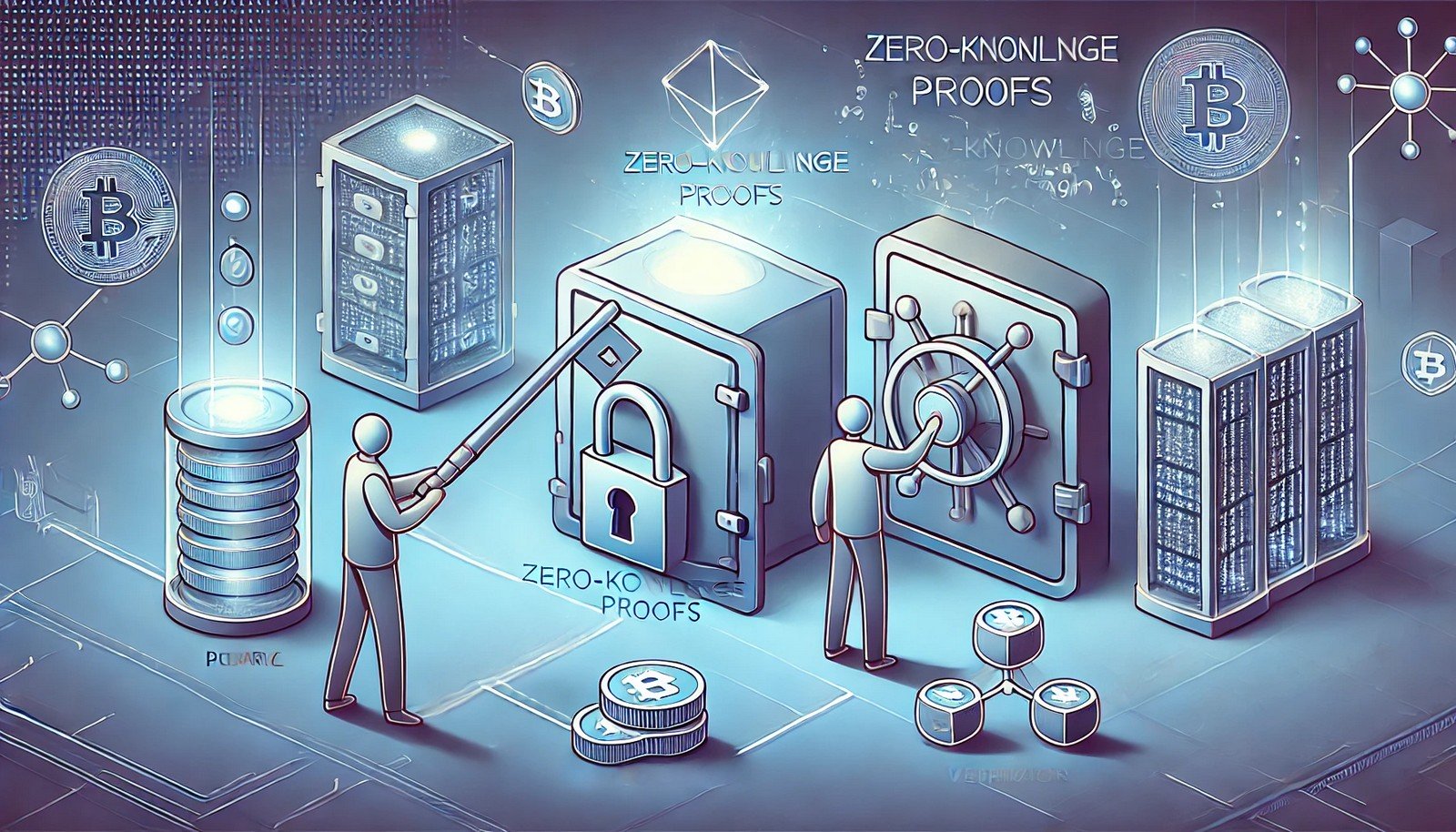Zero-Knowledge Proofs
 (Representational Image | Source: Dall-E)
(Representational Image | Source: Dall-E)
Quick Navigation:
- Zero-Knowledge Proofs Definition
- Zero-Knowledge Proofs Explained Easy
- Zero-Knowledge Proofs Origin
- Zero-Knowledge Proofs Etymology
- Zero-Knowledge Proofs Usage Trends
- Zero-Knowledge Proofs Usage
- Zero-Knowledge Proofs Examples in Context
- Zero-Knowledge Proofs FAQ
- Zero-Knowledge Proofs Related Words
Zero-Knowledge Proofs Definition
Zero-knowledge proofs (ZKPs) are cryptographic methods that allow one party (the prover) to prove to another party (the verifier) that a statement is true without revealing any underlying information about the statement itself. This is achieved using mathematical proofs that ensure the verifier gains no knowledge beyond the truthfulness of the claim. ZKPs are widely used in secure authentication, blockchain privacy enhancements, and confidential transactions.
Zero-Knowledge Proofs Explained Easy
Imagine you have a locked box, and you want to prove to your friend that you know the combination without actually telling them what it is. You can do this by opening the box while they watch, but without revealing the actual code. Zero-knowledge proofs work similarly—they let you prove something is true without giving away the secret behind it.
Zero-Knowledge Proofs Origin
The concept of zero-knowledge proofs was introduced in the 1980s by researchers Shafi Goldwasser, Silvio Micali, and Charles Rackoff. Their work laid the foundation for modern cryptographic protocols that emphasize privacy and security.
Zero-Knowledge Proofs Etymology
The term “zero-knowledge” stems from the proof technique where the verifier learns nothing other than the fact that a given statement is true, gaining "zero knowledge" beyond that fact.
Zero-Knowledge Proofs Usage Trends
With the rise of blockchain and decentralized finance (DeFi), zero-knowledge proofs have gained immense popularity. They are used in applications such as zk-SNARKs (Zero-Knowledge Succinct Non-Interactive Arguments of Knowledge) to enhance transaction privacy and scalability in networks like Ethereum and Zcash. Companies also use ZKPs for secure identity verification without exposing personal information.
Zero-Knowledge Proofs Usage
- Formal/Technical Tagging:
- Cryptography
- Blockchain Security
- Privacy-Preserving Computation - Typical Collocations:
- "zero-knowledge proof protocol"
- "zk-SNARK implementation"
- "cryptographic proof system"
- "privacy-preserving authentication"
Zero-Knowledge Proofs Examples in Context
- A cryptocurrency wallet uses zero-knowledge proofs to verify a user’s balance without revealing their actual holdings.
- Secure voting systems implement ZKPs to confirm valid ballots without exposing voter identities.
- Authentication systems use ZKPs to allow users to prove their credentials without revealing passwords.
Zero-Knowledge Proofs FAQ
- What are zero-knowledge proofs used for?
Zero-knowledge proofs are used for secure authentication, blockchain privacy, and confidential data verification without exposing sensitive information. - How do zero-knowledge proofs work?
They allow a prover to demonstrate knowledge of a secret without disclosing the secret itself, using cryptographic techniques. - What is zk-SNARK?
zk-SNARK stands for "Zero-Knowledge Succinct Non-Interactive Argument of Knowledge," a type of zero-knowledge proof used in blockchain for privacy. - Can zero-knowledge proofs be used outside of blockchain?
Yes, ZKPs are also used in secure communications, identity verification, and confidential data sharing. - Are zero-knowledge proofs computationally expensive?
Traditional ZKPs were expensive, but modern optimizations like zk-STARKs (Scalable Transparent Arguments of Knowledge) have improved efficiency. - What is the difference between zk-SNARKs and zk-STARKs?
zk-SNARKs require a trusted setup, while zk-STARKs are more scalable and do not require a trusted setup. - How do zero-knowledge proofs enhance privacy?
They enable verification of information without revealing the underlying data, making them ideal for private transactions. - Are zero-knowledge proofs secure?
Yes, ZKPs are built on strong mathematical foundations and cryptographic assumptions, making them highly secure. - What industries benefit from zero-knowledge proofs?
Industries like finance, healthcare, cybersecurity, and blockchain benefit from the enhanced privacy and security of ZKPs. - Can zero-knowledge proofs be used in AI and machine learning?
Yes, they can help in verifying AI model predictions without exposing sensitive training data.
Zero-Knowledge Proofs Related Words
- Categories/Topics:
- Cryptography
- Blockchain Privacy
- Secure Computation
Did you know?
Zero-knowledge proofs were first conceptualized in 1985, but their real-world applications only took off in the 2010s with the rise of blockchain technologies. Today, companies like Zcash and Ethereum use ZKPs to enable secure, anonymous transactions.
PicDictionary.com is an online dictionary in pictures. If you have questions or suggestions, please reach out to us on WhatsApp or Twitter.Authors | Arjun Vishnu | @ArjunAndVishnu

I am Vishnu. I like AI, Linux, Single Board Computers, and Cloud Computing. I create the web & video content, and I also write for popular websites.
My younger brother, Arjun handles image & video editing. Together, we run a YouTube Channel that's focused on reviewing gadgets and explaining technology.



Comments powered by CComment